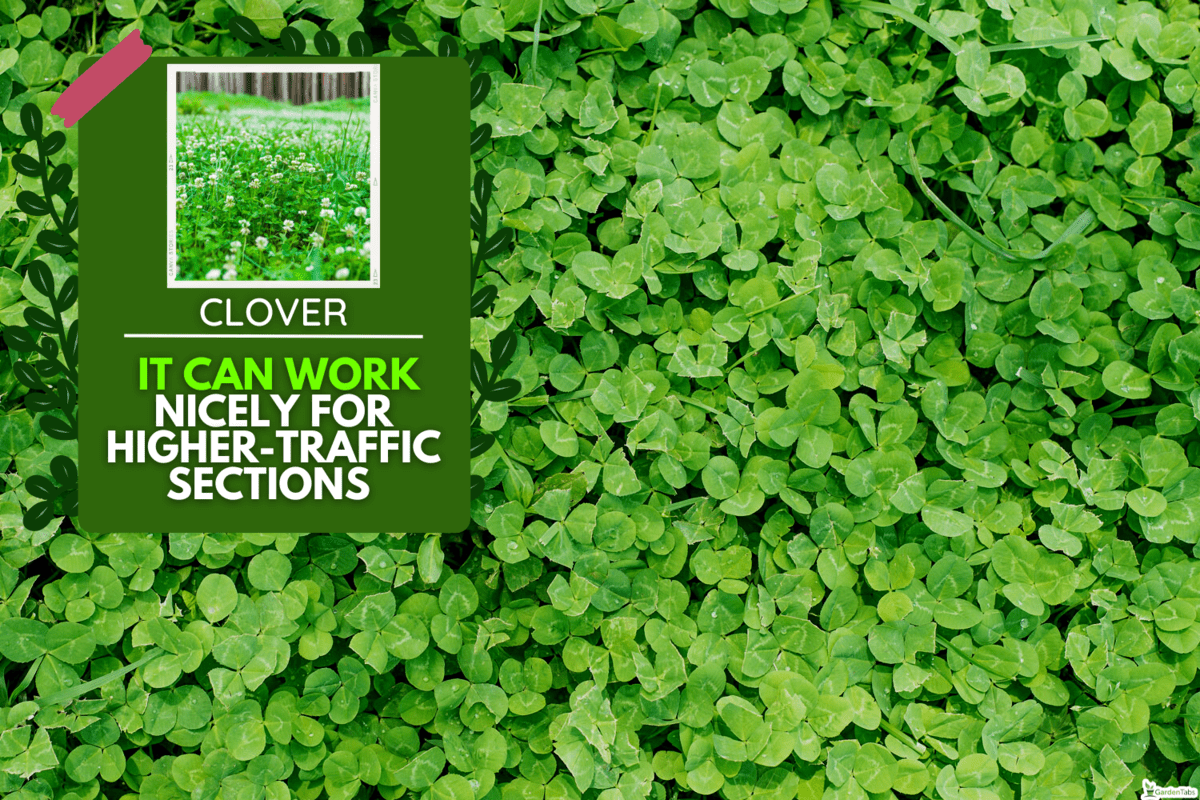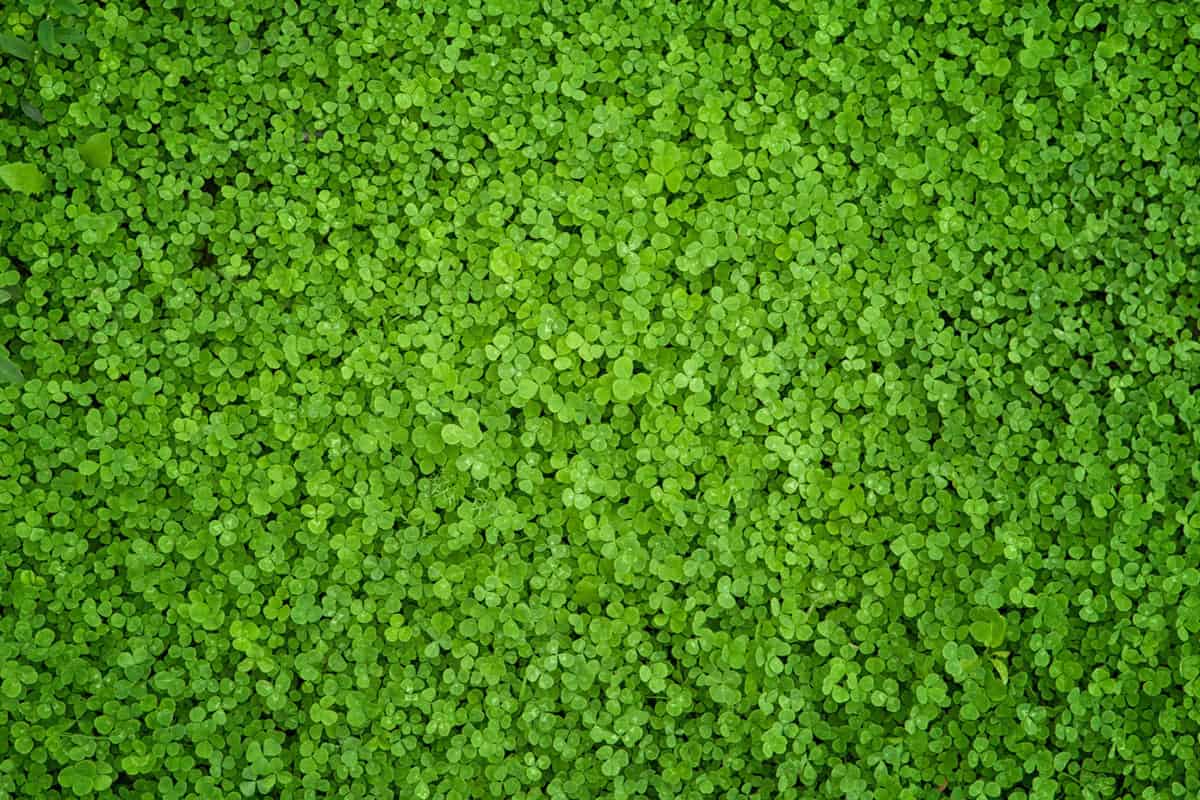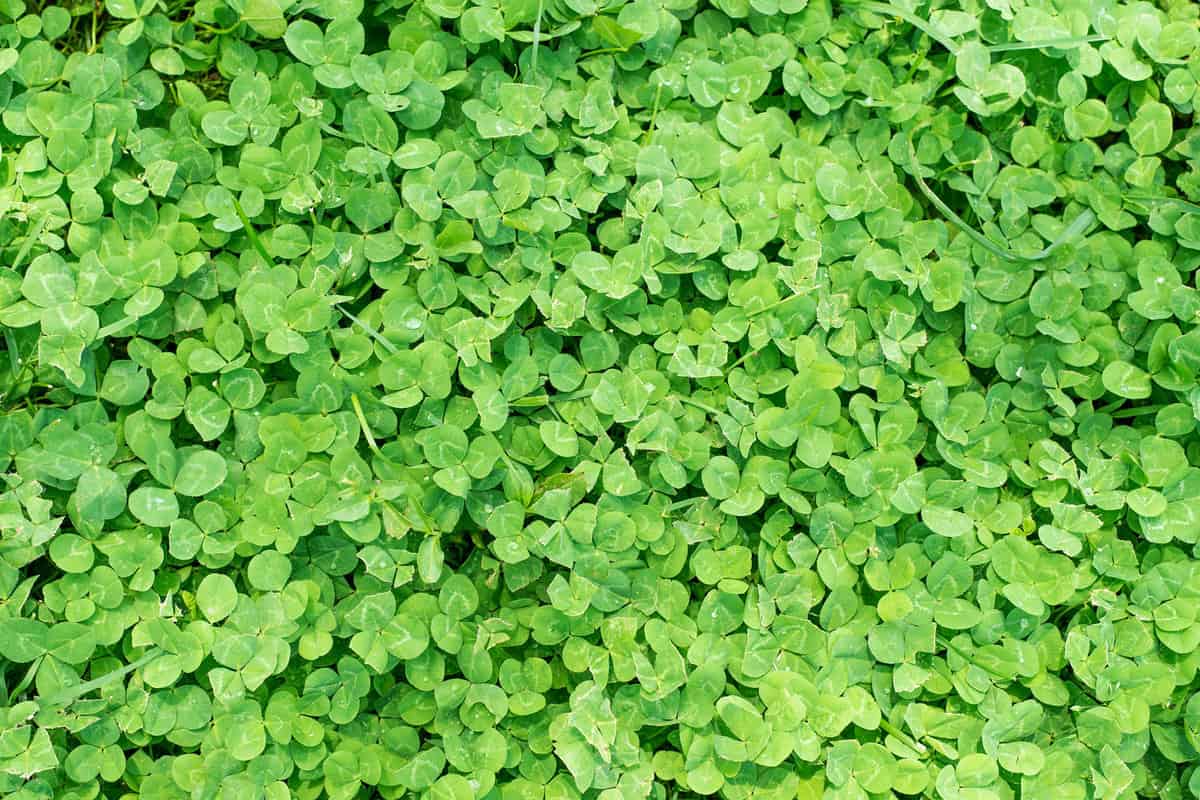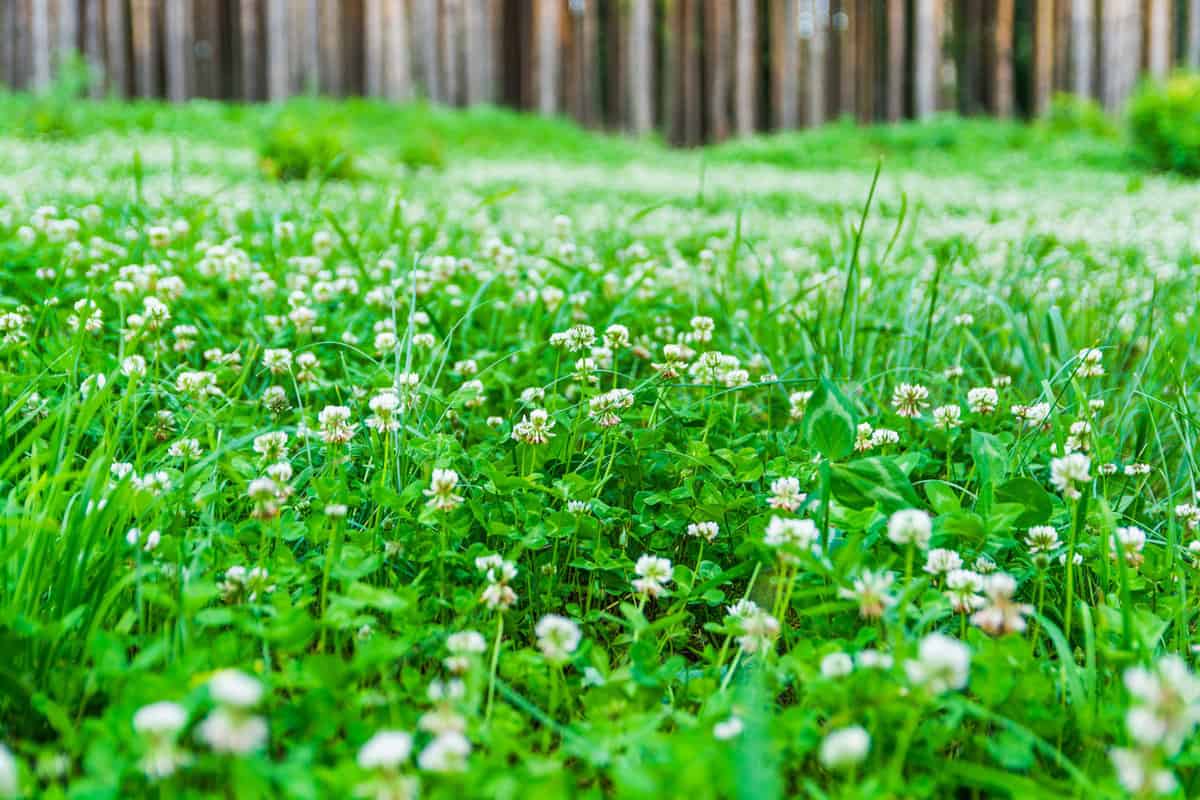This article was reviewed by Steve Snedeker, professional landscaper.
Finding the best way to keep your lawn green and lush can sometimes take getting creative. For example, are you considering using clover for high-traffic areas of your grass and property but don't know if they can handle it? Are clovers easy to grow in places where lots of people and equipment go through?
Luckily, we've done plenty of research into clover and have the answers below!
Considering that clover isn't as fragile as regular grass, it can work nicely for higher-traffic sections of a lawn or garden. Generally, clover can handle foot traffic without becoming patchy, making it perfect for that situation.
You can also plant clover in your lawn to cut back the time you have to spend reseeding, so growing it has many benefits.
As we start this article, we will cover all things clover and discuss whether it's a good option for high-traffic areas of your lawn and landscape. If you're new to growing grass, want to try something different, or need other tips and tricks, we're here to help. With that said, let's dive right into this topic!

Can I Use Clover In High Traffic Areas?
Yes! If you have high-traffic sections of your garden you want to keep green, adding clover can make this possible. Generally, you will mix clover into your existing lawn as it grows within the blades.
Many landscapers use clover as a "fill" for grass that may experience heavier foot or equipment traffic. That's because it tends to bounce back from the factors better than regular grass does.

A major benefit of clover in your landscape is that it stays green and helps fill in a patchy lawn. Especially if you walk through your grass to get to a shed, barn, pool, or another place, planting clover can help beautify your property.
According to Lawn Love, you might even prefer to mix clover with turf grass in high-traffic areas. That's because clovers on their own might not be able to handle heavy foot traffic, which is where the turf grass comes into play.
So, regardless of your grass, you'll want a healthy mix of it and clover.
Can You Grow Clover With Grass In High Traffic Lawns?
Yes. If you have an existing lawn growing but notice patchiness due to foot traffic: clover could be your saving grace. Remember, clover can grow as its own lawn or with other grass to combat heavy traffic.
Another interesting fact about clover is that it doesn't require as much upkeep as traditional grass. For example, you don't need to fertilize clover to see it thrive, which isn't always the case for grasses.
Additionally, clover grown alongside grass can help fill bald spots due to traffic within a month or two. Many people choose clover to supplement their lawns rather than keep reseeding to use less water and fertilizer.
Doing this is technically a greener option, as clover doesn't require nearly as much attention as grass. However, you can't always depend on clover individually to fill out heavy-traffic areas, so you may also need to plant turf grass.
We recommend combining two or more strong options for your lawn, as they will work to keep it green and lush throughout the year. Even though clover won't be exactly like grass, it can be the perfect filler for your lawn.
Clover is quite beautiful to look at, so it shouldn't ruin the aesthetics of your landscape by any means.
Is Clover Considered Grass?
Even though clover is green and grows alongside common grasses, it doesn't qualify as one. Instead, you can call clover a legume, which means that it captures nitrogen in the atmosphere and releases it to nearby plants.
One of the main reasons clover works in various lawns and spaces is because it supplements the surrounding plants with nitrogen and nutrients.
That is essentially free assistance to keep your lawn green and lush. Of course, clover will have little white flowers during certain seasons, so that might be a drawback to you.
Regardless, having clover throughout a healthy lawn should keep it growing as such and fill in the heavier traffic spots. The key is mixing it evenly with other grasses.
Many gardeners use multiple types of warm or cool-season grass within one lawn because that's an easy way to keep it full and growing. If you throw in some clover, foot traffic will be no match for your gorgeous green landscape!
Is Clover A Good Alternative To Grass?
Clover can be a nice alternative, depending on your current grass. However, it's not as common to completely replace grass with clover; instead, use it as a supplemental plant.
Clover isn't grass, so if you want your lawn to look like one, you'll need to add natural grass. Again, clovers can come in handy if your property experiences high traffic and has bald patches.
Like grass, you also don't want clovers on their own in high-traffic conditions. This species has about a medium threshold for traffic, meaning it's still better than grass: but not perfect.
As we mentioned, create a nice blend of grass and clovers for a flourishing lawn. According to the New York Times, clover is also the perfect supplement to grass in hotter climates because it doesn't mind high heat.
In contrast, grass will likely wilt during drought or hotter periods, so that's worth considering.
Is A Clover Lawn Better Than A Grass Lawn?

Although this answer varies by the person you ask, we would not say clover lawns are necessarily better than traditional grass lawns. Since clovers are legumes, they aren't going to give your home that "grassy" look.
Instead, they'll produce tiny white flowers and grow a bit denser than regular blades of grass. However, that can be nice for drier, hotter climates where traditional grass can't survive.
Furthermore, you might prefer to add clover to a grass lawn to fill it out. Combining clover with something else is better than growing it independently.
Moreover, you can't rely on clover for high-traffic gardens on its own. Therefore, only planting it will create the issue you came here trying to fix.
The best policy with clover and grass is to mix a few and see what works. The healthiest, fullest lawns tend to be ones with various types of grass in them, so keep that in mind for your space.
You also want to remember that clover is short-lived, meaning you'll need to replant it every 2-3 years.
Will Clover Choke Out Grass?

No. Clover won't usually choke out or overpower existing grass. Since this legume isn't aggressive, you won't see clover try and take over an entire lawn on its own.
As we said before, clover is very helpful to grass and can significantly boost nitrogen for it. Since grass relies heavily on nitrogen to stay green and lush, planting clover does more good than harm.
You also want to recall that clover is good for high-traffic areas within existing grass, making it a supplemental plant, if anything.
Unlike weeds, clovers tend to stay put and shouldn't cover the ground where you didn't plant them. Interestingly enough, clover is also helpful for preventing weeds.
That's because if you have enough clover together, their roots can become aggressive, sensing weeds and choking them out for nutrients.
In contrast, the grass is not aggressive or weed-like most times, so clover won't be threatened by it. So, if your lawn is mainly clover, don't expect much or any weeds to emerge from the soil.
Is Clover Invasive?
Technically, clover can be invasive in some landscapes/regions. According to the Invasive Plant Atlas of the United States, clover has contributed to the decline of 42% of U.S. endangered and threatened species.
Furthermore, clover has also contributed to the decline of 18% of U.S. endangered or threatened species. So, if you allow clover to sprawl and take over certain species, it will.
Luckily, with grass, clover shouldn't cause much trouble. However, you want to make sure to have an even amount of the two on your lawn.
You might even prefer less clover and more turf grass to keep it at bay. Try and focus on the high-traffic problem areas when planting your clover.
It's also worth noting that clovers won't become aggressive with grasses but instead supply them with nitrogen, so they are the perfect partner species.
So, planting clover is harmless unless you have an endangered species growing in your lawn/garden.
Is Clover Easy To Manage?

Once your clover is established, it will be pretty easy to grow and manage. Generally, clover doesn't require fertilization or much upkeep to stay green and lush.
Since they release nitrogen into the air naturally, you also don't need to worry about applying nitrogen-based plant food to them.
However, you may still need fertilizer if you have clover on a lawn. You also want to stay away from herbicides if you have clover in a lawn, as they kill nearly all clover varieties.
Many experts suggest mowing clover at a higher level to promote blooming in the summer, so that's something to remember.
To Wrap Things Up
Using clover is worth trying if you have patchy grass due to traffic or need ideas to fill out a declining lawn. You can grow clover alongside grass in high-traffic gardens, making it a nice supplemental species.
Furthermore, clover can be its own lawn if you prefer to stay away from regular grass, although it won't handle more than a medium level of traffic.
Therefore, we recommend mixing turf grass and clovers in heavier traffic lawns, and you should see a green, lush landscape year-round!
And while we have your attention, check out these related garden articles below:
Does Tenacity Kill Clover? [Is It Safe On Grass?]
